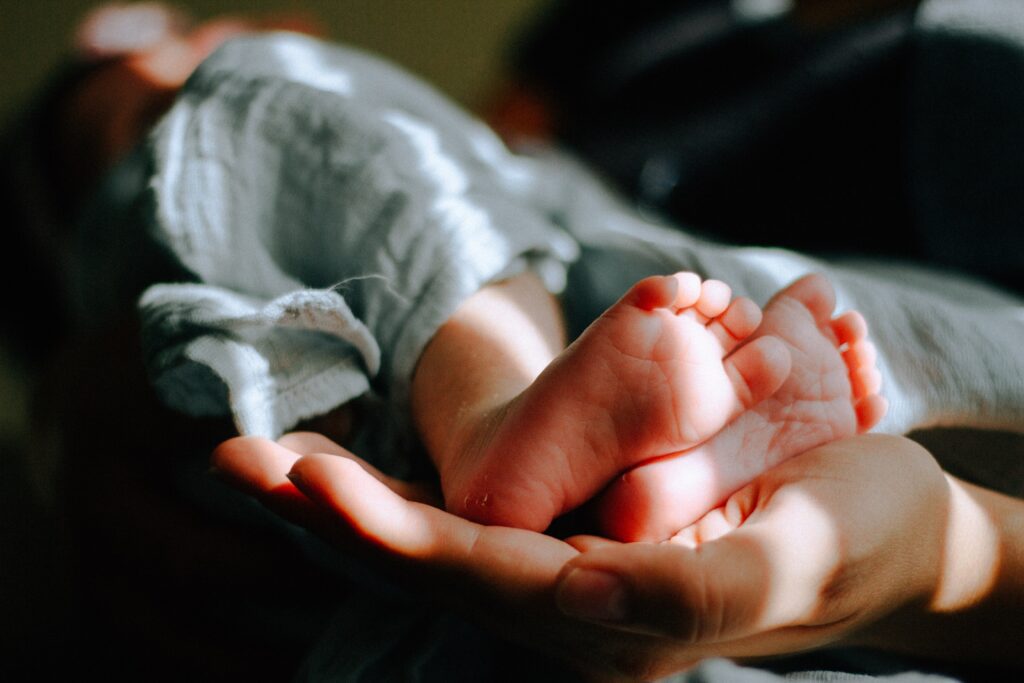I think I’ve always been an anxious person. I was afraid to meet new people; I was scared to go to school. But rather than avoiding the situations that made me uneasy, as many people might have done, my attitude was to lean into that discomfort. I thought: “I don’t like feeling anxious. I’m going to go say hi to all the people!”
In college, I learned that how I’d been dealing with my own issues had a lot in common with a type of treatment recommended by experts to treat OCD. That treatment is called exposure and response prevention therapy, or ERP.
In ERP, people learn how to be okay with uncertainty by exposing themselves to the things that cause them anxiety. In a way, that’s what I had unwittingly been doing since high school: Saying hi to everyone despite being so afraid to do so and exposing myself to uncertainty.
My immediate reaction to realizing this was, “Oh my gosh, I have to teach people with OCD to do ERP! I’ve been doing something like that my whole life!” I instantly declared myself a psychology major.
Committing to Being an OCD Specialist
I set out to learn everything there is to know about ERP and OCD. Later, I began working as an OCD specialist. I committed myself to work with the OCD community wholeheartedly, but I was pretty rigid and rule-based in my approach back then. I can recall myself thinking and saying things like:
“ERP is a manualized treatment, and we have to follow the manual.”
And that was polarizing.
Many people really wanted to work with me because they knew that I would get down to the nitty-gritty and push them along the road to recovery. But I also probably scared a lot of people away because my tough-love approach was a little much for them.
Over the years, I had a lot of patients who were dealing with postpartum OCD. It’s embarrassing to admit this, but I remember thinking: “I know everything there is to know about OCD and anxiety. I’m never going to struggle with this when I have my baby. I would never give into any intrusive thoughts about my child.”
I was 40 weeks pregnant and about to begin three months of maternity leave. I was so ignorant.
When OCD Strikes Home
I remember the first intrusive thought that I had. My son was around two weeks old, and I was putting socks on him. He was so tiny and so vulnerable, and I remember thinking, “What if you just snapped his ankle?”
At that point, I felt like I was two people and that these two people were having an argument.
The part of me with OCD said: “I can’t do it. I can’t keep putting the socks on him. What if I hurt him?”
The OCD specialist part of me responded: “You shouldn’t get into this right now. This is just an intrusive thought.”
But the part of me with OCD won out by saying: “I don’t care. The stakes are too high. I’m not doing it.”

And so I didn’t put socks on my son. But then it wasn’t just his socks. It was his pants too. And then it wasn’t just his pants. It was his shirt. I was just so terrified of harming him. From there, it snowballed. At a certain point, I became so sleep deprived that I thought:
“Did I go and bash his head against the wall, and I don’t remember?”
I remember even waking my husband up in the middle of the night and saying, “I just looked at Eli, but I’m so scared that I’m so sleep deprived that I’m not seeing something that’s actually there. I need you to wake up and go make sure that I didn’t bash his head against the wall or something.”
Obsessions about hurting my son got so bad that I was pulling over on the side of the road to pick him up out of his car seat. I had to engage all of my senses. I had to see him. I had to hear him. I had to smell him. I had to physically touch him.
Shifting Obsessions
Then my obsessions started to change. I began to struggle with changing my son’s diaper. I needed to tuck his penis down, so he didn’t pee all over himself. Touching my son’s penis was always challenging for me to do because I had thoughts about the appropriateness of doing that. Of course, changing diapers and bathing your child is going to involve touching them. If you can’t do that, you can’t care for your child properly.
My OCD had become entirely debilitating. That’s when I realized that I should have reached out for help much earlier. But considering what I do for a living, I felt a lot of shame about getting that help.
I vividly remember thinking, “I know everything there is to know about OCD. I’ve spoken at conferences, I’ve contributed to books. I’m a peer-reviewed author. I’ve done empirical studies about this stuff, and I’m struggling so badly with this. How on earth are people surviving when they don’t have the context that I do for what is going on in their brain?”
After realizing that I had to get past any feelings of shame and get help, there was the very practical problem of finding effective care.
The entirety of my maternity leave was taken up by dealing with OCD and finally getting effective help for my OCD. I came back to work as an entirely different type of therapist.
Back then, seeing an OCD specialist via Zoom wasn’t a thing. I live in a small community, and I thought: “Where am I going to go? I am the OCD therapist here!” Eventually, I did find someone who specialized in postpartum-related mental health issues, including ERP.
My therapist was incredibly helpful. She helped me lean into the uncertainties I was fixated on. It was everything that I knew I needed to do to get better.
Transformed by my OCD Experience
The entirety of my maternity leave was taken up by dealing with OCD and finally getting effective help for my OCD. I came back to work as an entirely different type of therapist.
Before I had my own issues, I did everything by the book. But after experiencing OCD up close and personal, I became way more flexible and empathetic. Obviously, I follow the science of ERP and practice it accordingly, but I’m much more aware of the fact that we’re all human, and we all make mistakes.
An equally important lesson was that everyone is unique. Some people are going to benefit from a tough-love approach, some of them will need a little more handholding, and that’s okay. It’s okay to still make the manualized treatment of ERP the bedrock of what you do, but it’s just as okay to infuse some other things in there or to give people a week off of doing ERP because they had a traumatic loss.
Research shows that manualized treatments and evidence-based treatments can be very effective. Still, we also have better gains and better adherence to treatment when it’s an individualized, personalized experience.
Something else that made me a better therapist was being able to relate to the lack of access people have to specialized OCD therapy. Again, online ERP therapy wasn’t around and so, like many people, I was suffering and didn’t know where to go.
I have so much more empathy now for people when they reach out. That’s why I feel so thankful that NOCD made it easy for people to reach out to the care team. I think a free 15-minute phone call is a big deal for people who are struggling like I was.
I’ve been there. It took me a long time to make that phone call. I remember telling my husband, “If I had time for a therapy appointment, I would take a shower. I don’t have time for therapy. I don’t have time to take care of myself.”
These days, I have a lot more compassion for people when they come to treatment because now I know how difficult that can be, and I understand the courage you need to make it happen.
I knew that my debilitating, first-hand experience of OCD had changed me and made me a less rigid, rules-based, by-the-book therapist. But the extent of that change really sank in when I saw patients that I’d been working with both before and after maternity leave.
I had several people come back and say something like, “Oh my gosh, I was so scared of you last time I was here.” I still help people achieve good outcomes, I still help people through uncomfortable feelings, but I do so with compassion and empathy that I just didn’t have before. In short, my own experience with OCD made me much more of a well-rounded—and therefore, better—therapist.

